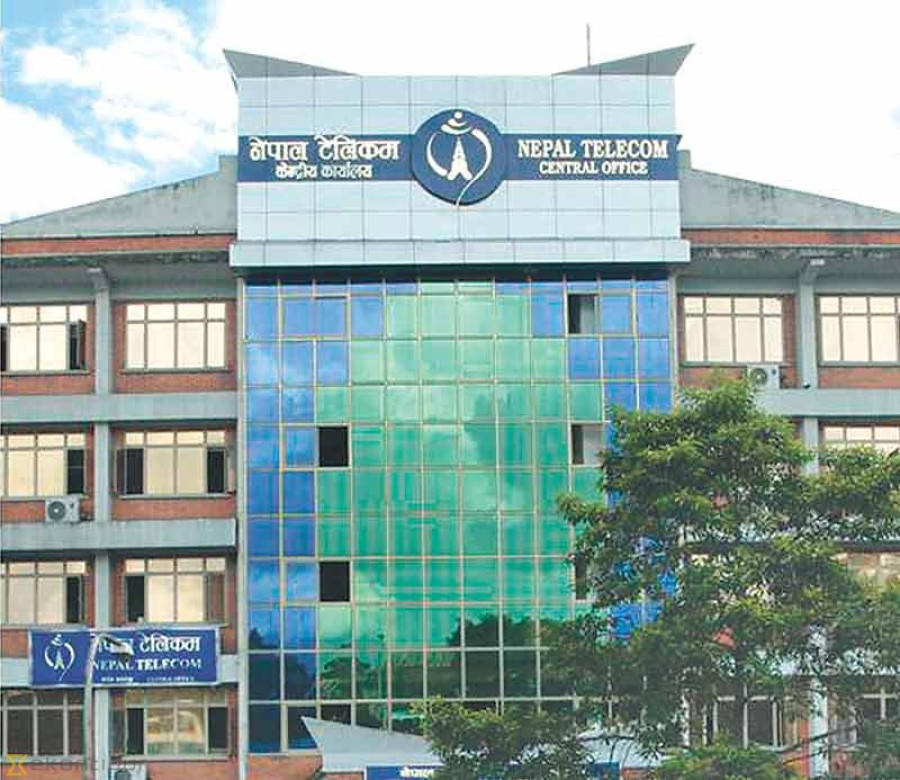Money
Telecom regulator to award Mobile Device Management System contract to Nuemera
The system tracks and blocks unregistered mobiles from entering the country through grey channels.
Prahlad Rijal
The Nepal Telecommunications Authority has disqualified Mobillion, the lowest bidder for a $7.66 million Mobile Device Management System contract, after finding out that the Belgian-Nepali joint venture included a local partner of Ncell.
The regulatory body said Tuesday that it would award the consulting contract for developing and commissioning the system to the second lowest bidder, a joint venture of Malaysian firm Nuemera, OSI of India and Namaste Global communication of Singapore. The Mobile Device Management System tracks and blocks unregistered mobiles from entering the country through grey channels.
“We launched an investigation of Mobillion on suspicion of conflict of interest, and found out that one of the firms was tied to mobile network operator Ncell as its local distributor of top-up cards,” said an anonymous source at the authority.
“Selecting a firm with tie-ups to local network operators would open the way for foul play.”
Belgian firm Infra Data, Mobillion Trade International of Nepal and Green IT solutions of Nepal had jointly submitted the lowest bid to execute the project, and their joint venture was close to winning the contract. But after Nuemera joint venture appealed against the selection of Mobillion, the authority started a probe into the matter.
The telecom regulatory authority moved to develop the system more than a year after the Mobile Device Management System (MDMS) Bylaws, 2018 were issued.
“We expect to develop and commission the system within six months and have called Nuemera joint venture to receive the contract within seven days,” said Purushottam Khanal, acting chairman of the Nepal Telecommunications Authority.
“A data centre will also be built to register identification numbers of mobile phones, and this system will prove crucial in discouraging use of phones imported through grey channels.”
According to Khanal, systems similar to the MDMS have proven helpful in curbing the grey market in many countries, and the selected contractor has a good track record in building such systems.
The system will track mobile phones based on the registration number or IMEI and deny telecommunication services to sets that have been reported lost or stolen, have invalid registration numbers or are not registered for use in Nepal, said the authority.
As per the law, all mobile devices which enter Nepal through business or personal channels must be registered with the system or they will be black listed. Once black listed, the mobile devices will be deemed non-compliant and network operators will be asked to deny services to such phones.
According to Trade and Export Promotion Centre statistics, 1.93 million units of mobile phones worth Rs8.8 billion were imported into the country in the first five months of the current fiscal year.
Apart from normal distribution channels, Nepal witnesses an influx of smart phones through personal channels which are classified as grey market by authorities. Grey market goods are legal, non-counterfeit goods sold outside normal distribution channels.
Mobile phone dealers have long complained of a drop in sales because of a widening grey market. The move to implement the MDMS comes as a counter measure aimed at bringing the devices under the registration net which will make it easier for authorities to monitor them.
According to Khanal, although there are no official records, estimates derived from falling sales of authorised sellers suggest that 20 percent of total imports come though grey distribution channels.
The bylaws will only come into effect after six months from the date of operation of the yet to be developed system aimed at regulating the mobile phone market.
With regard to sets that enter Nepal in the form of gifts and personal items, the bylaws allow the authority to charge a certain fee to register them and validate their use.
The system will be synced to a database called Equipment Identity Register that contains records of legal and illegal mobile devices in the country. The device management system is also expected to identify cloned, low-cost copy versions of branded phones with fake registration numbers.
The Mobile Device Management System (MDMS) Bylaws, 2018 have classified the devices as compliant and non-compliant. “Compliant mobile device is a device meeting the following criteria: Having valid IMEI/ESN/MEID number; not in the stolen/lost list; type approved by the authority; and registered in the Mobile Device Management System (MDMS) and imported into Nepal,” state the Bylaws.
As per the bylaws, the authority can allow the selected firm to operate and maintain the MDMS system for five years.




 9.7°C Kathmandu
9.7°C Kathmandu















